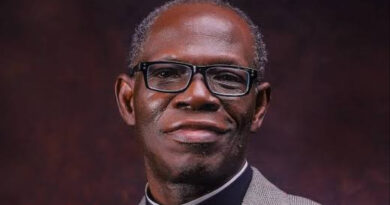Charlie Kirk’s Death Sparks Youth Return to Church
Youth Church Attendance Rises in Wake of Charlie Kirk’s Tragic Death
The shocking assassination of Charlie Kirk has left ripples across the Christian community in the United States, and one surprising development is the renewed interest in church attendance, especially among young adults.
JP De Gance, founder and president of Communio, a ministry dedicated to helping churches strengthen evangelism and outreach, said several pastors have reported an uptick in numbers over the past two Sundays.
These reports are coming from churches in states such as Pennsylvania, Ohio, Michigan, Illinois, and Colorado.
One Michigan congregation even noted that young adults who had been absent from church life for years suddenly returned. According to De Gance, Kirk’s sudden and violent death may have forced many young people to reflect on their own lives and faith.
“Many in their twenties assume they have plenty of time ahead of them. But when someone close to their age dies unexpectedly, it brings life into sharp focus,” De Gance explained.
Kirk, the 31-year-old co-founder of Turning Point USA and leader of TPUSA Faith, was shot and killed on September 10 during a Q&A session at Utah Valley University.
Read Also: Nigeria at 65: FG Cancels Independence Day Parade
Authorities allege that 22-year-old Tyler Robinson carried out the attack. Reports suggest Kirk’s outspoken stance on family, marriage, and Christian living may have been the reason he was targeted.
Churches Seize the Moment
Communio, which partners with about 400 churches across denominations, from Catholic to non-denominational, has observed a clear pattern: new faces are appearing in the pews.
But De Gance stresses that churches cannot simply celebrate the spike in attendance. Instead, they must intentionally create pathways for these visitors to stay and grow in their faith.
He suggests churches focus on building trust and authentic relationships, rather than relying only on sermons. Practical steps include hosting social gatherings, game nights, or even recreational activities like frisbee or kickball for young adults.
These settings, he said, provide opportunities for newcomers to connect, hear testimonies, and feel a genuine sense of belonging.
“When people feel known and valued, they’re more likely to stay. A church that shows interest in their lives creates a place where they can both belong and grow spiritually,” De Gance emphasized.
Mixed Data on Gen Z Engagement
The renewed surge in youth interest coincides with recent research highlighting Gen Z’s complex relationship with church.
A Barna Group study found that Gen Z believers attend services slightly more frequently than older generations, about 1.9 times per month compared to the 1.6 monthly average. Furthermore, church attendance among younger adults has nearly doubled since 2020.
However, data from the American Bible Society’s USA 2025 report paints a more sobering picture. It shows that while Gen Z is showing up more often, only 35% feel they’ve had meaningful opportunities to grow in their faith, far lower than older generations.
Turning Tragedy Into Revival
Kirk’s death, though tragic, appears to have become a wake-up call for many young adults searching for purpose and faith.
For churches, the moment presents both a challenge and an opportunity: not just to welcome newcomers through their doors, but to walk alongside them as they explore what it means to live for Christ.
Content Credit | Olaoluwa Ayomide
Image Credit | christiandaily.com




